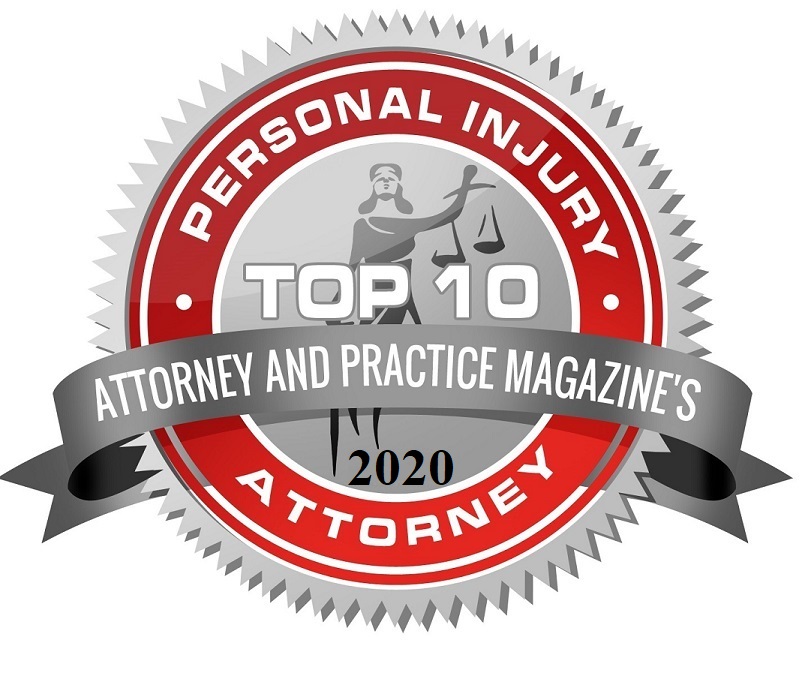Navigating the aftermath of a car accident in Florida can be a daunting experience, especially when it comes to building a strong case for compensation. The process of gathering evidence is crucial in ensuring that your rights are protected and that you have the best possible chance of receiving the compensation you deserve. Understanding the types of evidence needed and how to collect them can make a significant difference in the outcome of your case.






The Importance of Immediate Action
The moments immediately following a car accident are critical for gathering evidence. This is the time when the details of the incident are freshest in your mind, and physical evidence is most likely to be intact. It is essential to remain as calm as possible and start collecting information right away. Your actions at the scene can lay the foundation for your case and help your attorney build a compelling argument on your behalf. Delaying this process can result in the loss of valuable evidence, making it harder to prove your claim later.
Documenting the Accident Scene
One of the first steps in gathering evidence is to document the accident scene thoroughly. Photographs and videos can capture the immediate aftermath and provide a clear visual record of the conditions that led to the accident. Use your phone or camera to take pictures of the vehicles involved, including their positions, damage, and any skid marks on the road. Document the surrounding area, including traffic signs, signals, and road conditions. Capture any visible injuries you or your passengers have sustained. These images can serve as powerful evidence when negotiating with insurance companies or presenting your case in court.
Collecting Witness Statements
Witness statements are another critical component of your evidence collection. If there were any bystanders who saw the accident happen, try to get their contact information and a brief account of what they observed. Witnesses can provide an unbiased perspective that supports your version of events. It is essential to act quickly, as people’s memories can fade over time. When speaking with witnesses, be polite and respectful, and ensure that you accurately record their statements. Having a witness corroborate your story can significantly strengthen your case and lend credibility to your claims.
Police Reports and Medical Records
Official documents, such as police reports and medical records, play a vital role in establishing the facts of your case. When law enforcement arrives at the scene, they will create a report detailing their observations and any citations issued. Request a copy of this report as soon as it becomes available. It can provide an objective account of the accident and support your claim with the insurance company or in court. Similarly, medical records documenting your injuries and treatment are crucial. Seek medical attention immediately after the accident, even if you do not feel seriously injured. Some injuries may not be apparent right away, and having a medical professional examine you can ensure that all injuries are documented.
Preserving Physical Evidence
Physical evidence from the accident can be critical in proving your case. This includes damaged vehicle parts, broken glass, and personal items that were affected during the collision. Preserve any items that were involved in the accident and avoid repairing or discarding them until your attorney advises you to do so. Physical evidence can provide tangible proof of the impact and severity of the accident, helping to substantiate your claims. Ensure that all items are stored safely and securely to prevent further damage or loss.
Obtaining Surveillance Footage
In today’s world, surveillance cameras are almost everywhere. It is possible that the accident was captured on video by nearby businesses, traffic cameras, or even residential security systems. Identifying potential sources of surveillance footage can be invaluable. Speak with nearby business owners or homeowners to determine if any cameras might have recorded the accident. If you find potential footage, request a copy as soon as possible. Video evidence can provide a clear and unbiased view of the incident — which can be pivotal in establishing liability and supporting your claims.
Consulting with a Legal Professional
While gathering evidence on your own is essential, consulting with a legal professional can significantly enhance your efforts. An experienced attorney can guide you through the process, ensuring that you collect all necessary evidence and avoid common pitfalls. Your attorney can also assist in obtaining testimony, accident reconstruction reports, and other evidence that may be beyond your reach. Legal professionals have the resources and experience to conduct thorough investigations and build a robust case on your behalf. By working with an attorney, you can ensure that your case is as strong as possible.
Choosing The Right Personal Injury Attorney Personal Injury Settlement TimelineRelated Videos
Maintaining a Detailed Record
Keeping a detailed record of all aspects of your accident and recovery is crucial. Maintain a journal documenting your injuries, medical treatments, and how the accident has affected your daily life. Include any pain, discomfort, or limitations you experience as a result of the accident. This personal account can provide valuable insight into the impact of the accident on your life and support your claims for compensation. Additionally, keep track of all expenses related to the accident, including medical bills, repair costs, and lost wages. Detailed records can help ensure that you are fully compensated for your losses.
Dealing with Insurance Companies
Interacting with insurance companies can be challenging, especially when they attempt to minimize your claim. Be cautious when speaking with insurance adjusters and avoid giving recorded statements without consulting your attorney. Provide only the necessary information and let your attorney handle negotiations. Insurance companies may use your statements against you to reduce their liability.
By allowing your attorney to manage communications, you can protect your rights and increase the likelihood of a favorable outcome. Your attorney can also help you understand your policy and ensure that you receive the compensation you are entitled to.
Case Results
Understanding Comparative Negligence
Florida follows a comparative negligence rule, which means that if you are found partially at fault for the accident, your compensation may be reduced by your percentage of fault. Understanding this principle is crucial when gathering evidence. Ensure that the evidence you collect clearly demonstrates the other party’s liability. Your attorney can help you navigate this complex legal landscape and build a case that minimizes your degree of fault. By presenting strong evidence, you can maximize your chances of receiving fair compensation despite the comparative negligence rule.
The Role of Medical Evidence
Medical evidence is one of the most compelling types of evidence in a car accident case. Detailed medical records, doctor’s notes, and opinions can illustrate the extent of your injuries and their impact on your life. Ensure that you follow all medical advice and attend all appointments. Consistent medical care not only aids in your recovery but also strengthens your case. Your attorney can help you obtain necessary medical documentation and testimony to support your claims. By providing thorough and accurate medical evidence, you can substantiate your injuries and the need for compensation.
Long-Term Impact and Future Damages
When gathering evidence, consider the long-term impact of the accident on your life. This includes future medical expenses, ongoing treatment, and any permanent disabilities resulting from the accident. Document how the accident affects your ability to work, your quality of life, and your emotional well-being. Future damages can be challenging to quantify, but thorough documentation and testimony can help establish their significance. Your attorney can assist in calculating these damages and presenting them effectively in your case. By considering the long-term impact, you can ensure that you receive compensation that adequately reflects your losses.
Securing Legal Representation
Having legal representation is invaluable when gathering evidence and pursuing a car accident claim. An attorney can provide guidance, resources, and experience that enhance your ability to collect and present evidence effectively. They can help you navigate the complexities of the legal system, negotiate with insurance companies, and represent you in court if necessary.
Choosing the right attorney is crucial — look for someone with experience in car accident cases and a track record of successful outcomes. With the right legal representation, you can confidently pursue your claim and maximize your chances of a favorable result.
Final Considerations
Gathering evidence for your Florida car accident case requires immediate action, thorough documentation, and strategic planning. From the moment the accident occurs, every step you take can influence the outcome of your case. By collecting detailed evidence, maintaining accurate records, and securing experienced legal representation, you can build a strong case that supports your claims for compensation. The process may be challenging, but with the right approach and professional guidance, you can navigate the aftermath of a car accident and seek the justice you deserve.
Contact Serrano Law Today
If you have been involved in a car accident in Florida, do not hesitate to seek legal assistance. At Serrano Law, we are dedicated to helping accident victims gather the evidence needed to build a strong case. Our experienced attorneys will guide you through every step of the process, ensuring that your rights are protected and that you receive the compensation you deserve. Contact us today to schedule a consultation and learn how we can help you navigate your car accident case.



